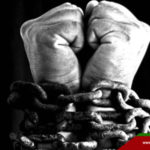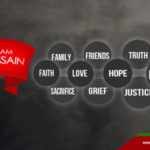Dr Hasnain Walji
Islam, in common with all major faith traditions, demonstrates a special dimension towards family. As a basic building block of a society, a family creates an environment in which moral and spiritual values are transferred from generation to generation. Indeed, Muslims consider a family to be an institution ordained by the Almighty as one of His signs.
“And among His Signs is this, that He created for you wives from among yourselves, that you may find repose in them, and He has put between you affection and mercy. Verily, in that are indeed signs for a people who reflect” (Q. 30: 21).
The relationship within the family, between all its members, but most important of all, between a husband and wife is a spiritual relationship which sustains and generates love, kindness, mercy, and compassion. The cultivation of this relationship is a lofty expression of the best in being human: helping each other to reach our God given potential.
Within the environs of the family the spiritual potential of men and women becomes actualized, enabling the blossoming of goodness and virtue in a society. It is the family that provides the most congenial of eco-systems for the development and fulfillment of the human personality. That is why the Prophet (peace be upon him) has said that home is the best place in the world.
Elsewhere spouses have been described:
“They are like a garment to you, and you are (like) a garment to them (Q.2:187).
This verse describes mutuality as each other’s covering, not just one as the garment and the other the body. It also defines the closeness of the relationship between spouses – as protectors and guardians of each other. The garment beautifies the wearer hence one feels incomplete without it.
On marriage Mevlana Rumi says:
May this marriage have a fair face and a good name,
an omen as welcomes the moon in a clear blue sky.
With that said, globalization has affected all aspects of family life for all faith traditions. Needless to state, the concept of family in Islam is not immune from the rapidly changing in perspectives of family in the wider society.
All religions in general offer protective mechanisms against erosion of family values. As things stand today, Islam appears to be more resilient in the ability to confront new tendencies which threaten traditional family values. The question is for how long?
In almost all Western societies the structure and dynamics of families and households have been modified substantially over the past two centuries. Many of these family trends are intricately interwoven spawning fundamental transformations of Western societies including many moral values espoused by faith traditions. The religious values that had significant effect on family life in societies of the past are being challenged by modernity.
These changes in family life have had substantial effects on the foundational religious doctrines, drastically modifying the influence of religion in the lives of individuals and their families. Largely Americans have accepted the legitimacy of remaining single, the appropriateness of divorce, as well as acceptance of alternative family styles. Attitudinal trends of greater willingness to allow others to choose their own behavior and family relationships without imposing personal preferences, religious standards or judgments, are now seriously impacting American Muslims too. The upcoming generations of Muslims in America are trying to seek the ever-eluding equilibrium within their own families, while most religious leaders seem too busy harping on the dos and don’ts, rather than offer to help families deal with the aforementioned changes impacting the very fabric of Muslim families.
Thankfully, all is not lost. Having a happy marriage and a good family life are consistently singled out by Americans as the two most important facets of their lives. Most Americans, including Muslims continue to be engaged within network of kith and kin to receive physical and emotional support. About four-fifths of all married Americans report their marriages as being very happy or above average, while only about two percent say their marriages are not happy. Ninety percent of young people say they plan to marry and have children showing that, families continue to play a vital role in their vision for life.
Yet virtually every religious group in the United States, Catholic, Jewish, Protestant, Muslim or Mormon—has experienced the similar basic trends in marriage, divorce, alternative family styles.
However, increasingly, today, beliefs relating to family are being interpreted on individualistic basis and less so in terms of religious injunctions. Many now look to religion more for its personal meaning and less for its societal rules. By default, Muslims along with their fellow citizens have to navigate through these redefined standards of conduct, which more often than not, are incompatible with faith traditions as regarded to the structure, rights and responsibilities of an ideal family. As a result, the power of the religious hierarchies over individual thought and behavior are all on the decline.
The rationale for this review is not to condone all changes taking place in our communities, but a call to action for our traditional scholars, social scientists and moral philosophers to go beyond the basics of jurisprudence and begin to proactively offer solutions for families to navigate the new realities. I distinctly recall an earnest question paused by a mother during my series of Muharram lectures: ”how do I explain to my 5-year-old that his friend Joe has two moms?’‘ Indeed, how do we explain? But explain we will have to.
Such discussions are of great societal significance because after all, families are basic building blocks of society. The wellbeing of a society is always dependent on the emotional and physical state of the family members within that society.
As Allama Iqbal has said:
Fard qaim rabt-e-millat se hai, tanha kuch nahi,
Mauj hai darya mai, beron-e-darya kuch nahi” ,
Iqbal has brilliantly captured the spirit of mutual interdependence of individuals and society saying that ‘as individuals we anchored in a society, otherwise we are nothing’ using the metaphor of a river he says the ‘drops cone together to make waves, outside it a drop is nothing!








